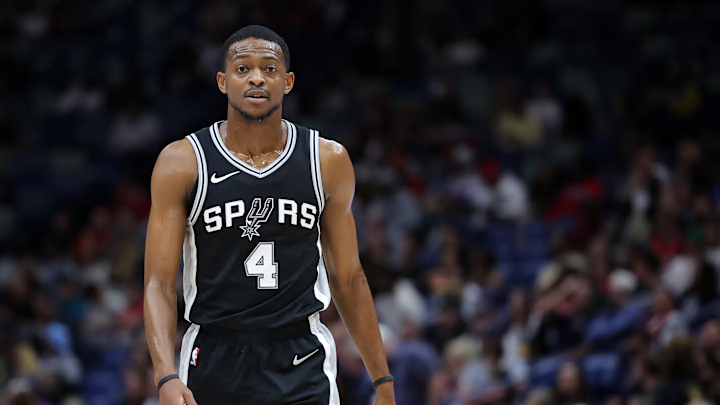The offseason hasn't even officially begun, and things are already not playing out as many expected them to for the San Antonio Spurs. They will have the second pick in this year's draft and are widely expected to select Rutgers guard Dylan Harper.
That is both a blessing and a potential curse, with the Spurs having three guards: De'Aaron Fox, Stephon Castle, and Harper. Some—including myself—are concerned about how the Spurs will handle their suddenly crowded backcourt going forward, especially with Fox expected to receive a new contract this summer.
Originally, it appeared that one of the reasons Fox came to San Antonio was that they could open up cap space to do a renegotiate-and-extend. That would allow him to get a raise on the $37 million he is owed next season and tack on another four years to that contract.
However, after the Spurs' selection in the 2025 NBA Draft jumped from eighth to second, that appears unlikely.
The Spurs’ landing the second pick may cost De’Aaron Fox a lot of money
The difference between those pick slots is $5.5 million, and that eats into the team's potential cap. That could help the Spurs by possibly taking a renegotiate-and-extend off the table.
Instead, they could just sign him to a four-year extension this summer and operate as an above-the-salary-cap team. That would give the team full access to their mid-level exception of $14.1 million and the bi-annual exception of $5.1 million.
That would be the best-case scenario for San Antonio, considering that it would grant them flexibility. Given the Spurs' uncertainty at guard going forward with Fox, Castle, and the likely addition of Harper, keeping Fox's contract to a reasonable amount would be advantageous. That is in the event that they would need to trade him down the road.
The Spurs could be forced to trade De’Aaron Fox in a worst-case scenario
Trading him would be the worst-case scenario and would likely only come about if he underperforms or the Spurs have luxury tax issues. That could happen if the Spurs don't consolidate assets, such as trading Devin Vassell and Keldon Johnson or letting Johnson leave in free agency when his contract is up in two years.
However, having Victor Wembanyama on his rookie-scale contract for the next two seasons and Castle and Harper on theirs for the next three and four years, respectively, is huge. That will help to offset a Fox extension, at least for the next few seasons.
Another interesting possibility, proposed by Bleacher Report's Grant Hughes, would be to extend Fox for fewer years and/or less than the max. Instead of a four-year extension that would keep him under contract until he's 32, they could opt for a 3-year extension.
That would keep him under contract until he's 31 and would coincide with the end of Harper's rookie deal. If Harper is as talented as we hope, then San Antonio could let Fox leave in free agency. Or, they can use his expiring contract to make a big trade at the deadline before he hits free agency in this scenario.
Overall, the Spurs' landing the second overall pick likely cost Fox some money. Even so, he is all but guaranteed to get paid this summer on a long-term extension that would keep him under contract for the next five years. Hopefully, that will work out for both Fox and the Spurs.
